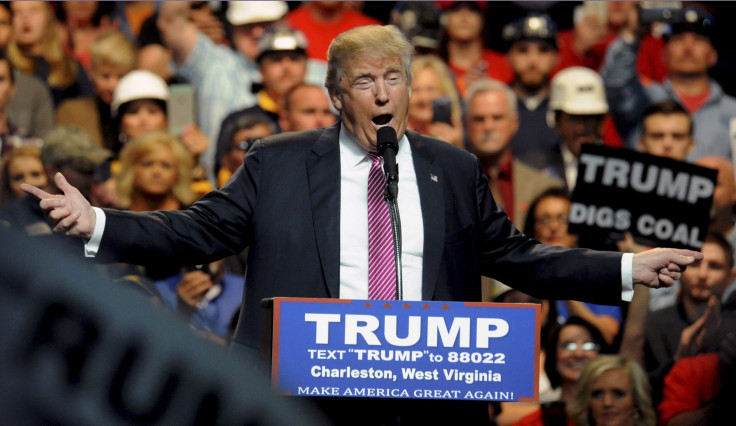Where Does The Anti-Trump Money Go Now? Donald Trump’s Opponents Have Millions Of Dollars Left

Over the past year, Republican super PACs and campaign committees have spent millions of dollars in an attempt to keep Donald Trump from becoming their party’s general election candidate. That attempt failed, and Trump is the presumptive nominee.
As a result, the forces that once opposed Trump have been left with no clear mission — and millions in unspent funds. The dilemma applies to both anti-Trump super PACs and the campaign committees for his former opponents. A handful of his former opponents ended their campaigns with millions of dollars in cash still at their disposal. By the end of March (the latest month for which data is available), the defunct Marco Rubio campaign still had nearly $3.75 million on hand, according to data provided to International Business Times by the Center for Responsive Politics. Rubio dropped out in the middle of that month.
Ben Carson, who exited the race at the beginning of March, closed out that month with $3.37 million in the bank. It’s not clear how much Ted Cruz had left by the time he ended his campaign this week, but at the end of March he still had $8.8 million lying around.
But the real money is in the anti-Trump super PACs that have lost their mission. Right to Rise, the super PAC that supported Jeb Bush’s candidacy until he dropped out in late February, closed out March with $17.3 million on hand. The pro-Rubio Conservative Solutions PAC ended that month with nearly $2 million available. Three similarly named pro-Cruz super PACs — Keep the Promise I, Keep the Promise II and Keep the Promise III — collectively boasted nearly $19 million on hand at the end of March. It’s not known how much they currently have in reserve.
So what happens to all that money? The Sunlight Foundation’s Libby Watson, who has been researching the flow of money from defunct campaigns, said former candidates have a number of options for disposing of that leftover cash. Super PACs have even more options.
“There are rules about what candidate committees can do with the money, but there aren’t really the same rules with super PACs,” Watson told IBT. “They could do what they like with it.”
Campaign committees can use their leftover money to do things like paying off their (frequently prodigious) debts or supporting other campaigns, but they remain subject to the relatively tight federal rules governing campaign finance. Super PACs exist in a considerably more permissive legal ecosystem.
That isn’t to say that super PACs operate without constraints. But those constraints tend to be more political than legal, Watson said.
“The people who run super PACs work in [Washington] D.C. and they’ve got to maintain their relationships with donors,” she told IBT. “They do have to be somewhat open and honest so as not to upset the people who gave them money.”
That means a super PAC that raised money by opposing Trump is not likely to turn around and start spending big on pro-Trump ads, if only because that would alienate contributors. If a super PAC does find a new mission, it’s likely to be more closely aligned with the old mission.
For example, after Carly Fiorina exited the Republican primary in February, the pro-Fiorina super PAC Carly for America retooled to support downticket “conservative outsiders.” Similarly, the super PAC that backed up Lindsey Graham’s short-lived presidential campaign pivoted to support Senate Republicans after he dropped out in December.
Other super PACs just opt to refund some of their donations. When Texas Gov. Rick Perry ended his campaign in September, the two main super PACs behind him started returning $13 million in contributions. Last month, the pro-Jeb Bush super PAC Right to Rise announced plans to give back $12 million.
It remains to be seen whether any of the money returned to donors will eventually find its way into the coffers of pro-Trump super PACs. Now that the presumptive nominee is gearing up for the general election, he has been courting the large donors whom he avoided in the primary. One billionaire, casino mogul Sheldon Adelson, announced his support Thursday evening.
© Copyright IBTimes 2024. All rights reserved.






















